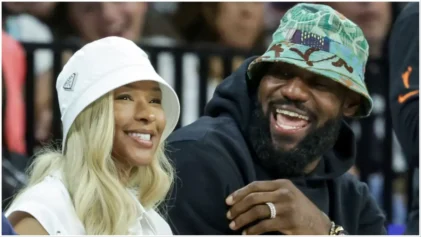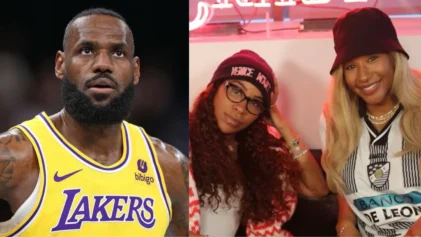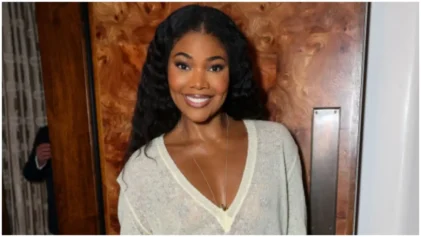LeBron James, Dwyane Wade and other NBA players are putting up a united front amidst the NBA lockout that has already cancelled the first 100 games of the season. Just last weekend the players hosted a charity basketball game in Florida. Wade reportedly treated the game amongst his peers as a regular season game and maintained all his rituals, including eating the same meal he eats before each game. Dwyane Wade and others hoped to bring together some players for their fans in an effort to let them know they’re not forgotten.
Wade stated: “We can make sure we find a way to bring the game of basketball to our fans in some capacity. I hope our fans understand there’s a business side of the game. It’s very unfortunate. We can’t control that. . . .” Here’s another plea for the fans to stand by the players. Read below:
The 450 Man March: NBA Players Show Inspiring Unity in Lockout
By Nick Chiles
While there will be much grumbling from the jaded public about the greediness of spoiled millionaires as the NBA players fight with the owners over a new contract, the power and unity being shown by the players is one of the most impressive demonstrations of black male solidarity and coalition-building since the Million Man March.
Normally perceived as selfish and short-sighted, the players have banded together to fight an intimidating group of white multimillionaires and billionaires, rightfully claiming that all NBA revenue stems from their talents, and they should have a say in dictating how much of that revenue winds up in their pockets. It is a radical departure from the way that black male athletes have historically been treated by the powerful white men who controlled them, as William Rhoden skillfully explored in the seminal book “Forty Million Dollar Slaves.” Not one tear should be shed in this dispute for the owners, whose ultimate goal will always be to increase their bottom line while paying their employees as little as possible.
NBA Commissioner David Stern announced on Monday night that the NBA was canceling the first two weeks of the season. That means about 100 games down the tube, six to eight games per team. For each week lost, the league loses about $200 million in revenue. The strategy of the owners is entirely predicated on their expectation that the players are undisciplined, greedy and short-sighted–as soon as that first paycheck isn’t deposited into their accounts on Nov. 15 and they realize they have no funds to buy that tricked-out Escalade, the players will crumble and come crawling back to the owners willing to give them everything they wanted. That is the ownership position. After all, that strategy worked in the 1998-99 dispute, when the players caved after 32 games were shaved off the season. When you expect the other side to crumble, why seriously engage in negotiation? Of course it is the same strategy that management uses in most labor disputes–but the strategy makes sense when the labor force is made up of factory workers struggling to put food on the table, not multimillionaires who should have enough money saved to last for a years-long standoff. NBA players have told me privately that they knew this was coming and they are financially prepared for it this time. Forget about short-sightedness. That’s not happening here.
Union President Derek Fisher
At issue is what percentage of revenue should go to player contracts–the players currently get 57 percent of revenue, but the owners want to drop that all the way down to 47 percent–and the desire by owners to impose a hard salary cap, which would radically shorten the length of contracts offered to players and give them much less job security. In a profession where the median salary is about $2.3 million a year, that 10 percent drop the owners are seeking could mean $200,000 a year or more for the typical player. With an average career length of less than five years, NBA players know they need to fight every pay cut on the table.
In what other arena can we see a group of black men come together and eloquently dictate to their white bosses the terms of their employment? It just doesn’t happen anywhere else in the business world. We all should be applauding their strong, principled stand and use them as an inspiration for all black people, all powerless people, to speak out more forcefully for their own economic well-being. After all, researchers just announced that median household income for all Americans dropped by 10 percent over the past four years, with the largest drop coming among African-Americans.
While on its surface the NBA action may seem unrelated to the anti-Wall Street protests currently roiling the nation, in fact there’s a direct connection: both movements are about the workers subverting the will of billionaires and dictating a fairer distribution of revenues. Don’t expect to see Lebron James sleeping in a tent on Wall Street anytime soon, but in spirit he is right there with the Wall Street protesters, fighting a system tilted against him.
Nick Chiles, a Pulitzer Prize-winning journalist and New York Times bestselling author, is the co-author of the forthcoming book, Fatherhood: Rising to the Ultimate Challenge, written with Etan Thomas of the Atlanta Hawks.


